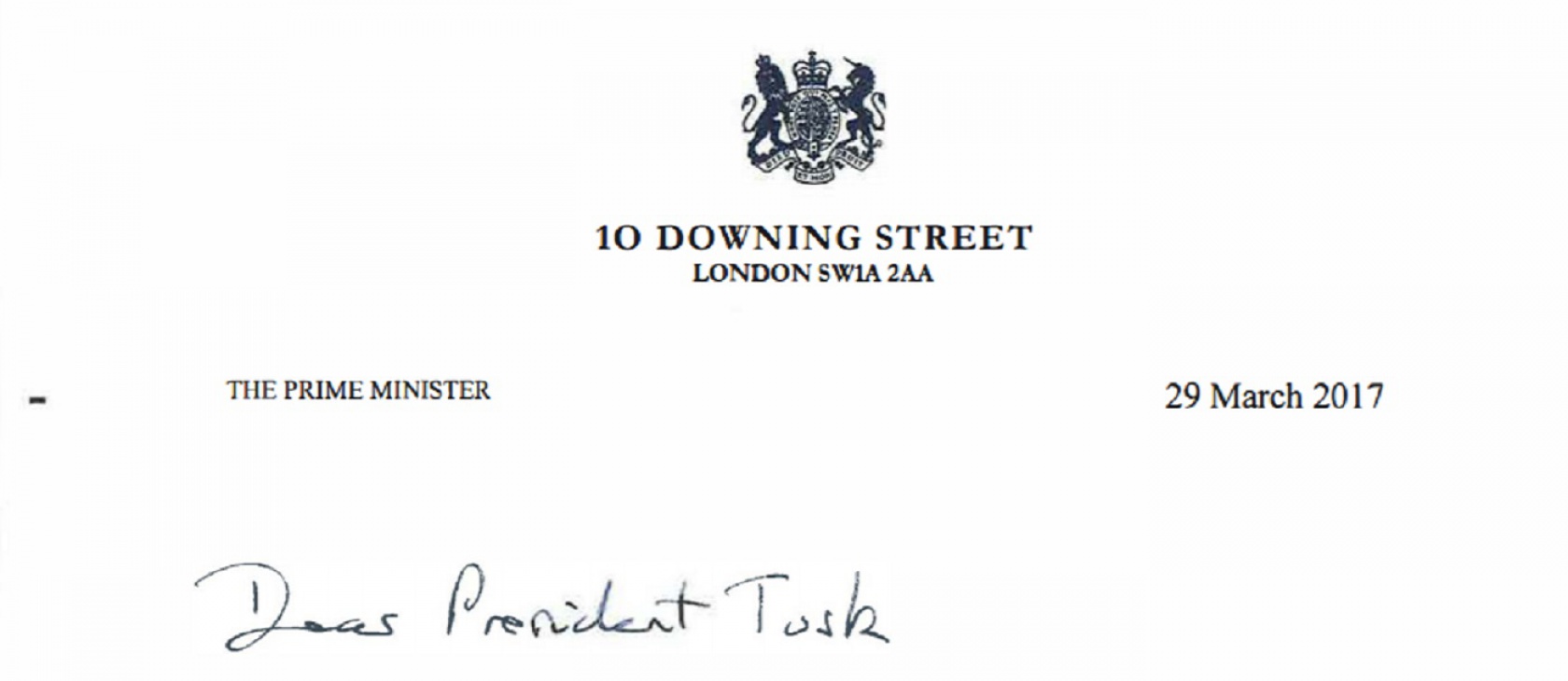With the delivery of Theresa May’s letter this afternoon, Brexit has begun. The communique - which Sir Tim Barrow personally handed European Council President Donald Tusk – expresses her desire to replace the EU with "deep and special partnership,” or as she said in this afternoon’s speech to Parliament, “a partnership of values." However, as we have documented, the notion of transatlantic values can stand for anything from religious tolerance to the social welfare state. What sort of partnership does the prime minister hope to enact in 730 days?
What values does Theresa May envision, post-Brexit?
The government will issue a white paper tomorrow giving further details of the path forward. However, from today’s events, we can see that PM May values:
Innovation. May told Parliament she envisions the UK as "a magnet for international talent and a home to the pioneers and innovators who will shape the world ahead.”The Eurozone lags behind the U.S. in innovation, according to the Centre for European Reform (CER), because the EU lacks the “creative destruction” of a more entrepreneurial economy. Tomorrow’s white paper will outline some of the EU regulations the UK will repeal, freeing the private sector.
Free trade. May sees promoting free trade as a value Europe should export. At a time when "there are signs that protectionist instincts are on the rise in many parts of the world, Europe has a responsibility to stand up for free trade in the interests of all our citizens,” she told Parliament. Her letter proposes “a bold and ambitious Free Trade Agreement between the United Kingdom and the European Union.” But she also sees the post-Brexit UK becoming a “a truly Global Britain” that can “strike trade agreements with countries from outside the European Union." Since the EU is a customs union, the UK cannot raise – or lower – tariffs against non-EU members until after Brexit is complete. But Great Britain has already “set up trade working groups with 15 countries” to outline trade deals in 2019, according to Liam Fox, the UK’s international trade secretary.
Subsidiarity. Reclaiming Great Britain's national sovereignty, especially over immigration levels, was a primary driver of last June 23’s referendum. "Leaving the European Union will mean that our laws will be made in Westminster, Edinburgh, Cardiff and Belfast. And those laws will be interpreted by judges not in Luxembourg, but in courts across this country,” May said today. Even while celebrating the EU this weekend, Pope Francis noted that it is “often perceived as distant and inattentive.” Furthermore, May said that Brexit will mean decentralizing within the UK, so that "Scotland, Wales and Northern Ireland will see a significant increase in their decision-making power as a result of this process."
What happens next?
On April 29, representatives of the 27 remaining EU nations will authorize the European Commission to begin the negotiation process. The parameters will be printed, and talks will likely begin in May. The key issues include:
- The border between the Republic of Ireland, which is an EU member, and Northern Ireland, one of the UK’s “devolved administrations”;
- The status of EU nationals living in the UK, and Britons living abroad;
- The future of national security arrangements between the UK and the EU, including British membership in Europol;
- The terms of the British exporters’ access to the Single Market;
- A potential “divorce bill” requiring the UK to pay the EU as much as £52 billion ($64.5 billion U.S.); and
- The UK's ongoing participation in some EU initiatives.
Prime Minister May has promised that, after the deal is complete, both Houses of the UK Parliament will vote on the full package. That will certainly face opposition inside Westminster. During today’s question-and-answer session, Labour Party leader Jeremy Corbyn said he will work to prevent the UK from becoming "a low-tax haven." The First Minister of Scotland - which voted overwhelmingly to remain in the EU - also seeks a second independence referendum, which Members of Scottish Parliament (MSPs) approved last weekend, 69-59.
The final agreement Brexit must then be approved by a “qualified majority” of at least 72 percent of the 27 EU states, representing 65 percent of its total population. That means a tiny province of Belgium could potentially veto the Brexit deal, just as it held up the EU-Canadian trade deal, CETA.
What happens if no deal is approved?
The UK’s membership in the EU will automatically expire in 2019, whether or not an agreement is reached, unless all parties agree to extend negotiations. Should talks break down, May wrote to Tusk, the UK “would have to trade on World Trade Organization terms,” enjoying no more favorable trade relationship with the Eurozone than Vanuatu or Djibouti.
The UK government could also reverse course and decide to remain in the EU, according to the author of Article 50 of the Lisbon Treaty.
However, judging from her speech today, May sees an “ever closer union” with Brussels inconceivable on its terms.




